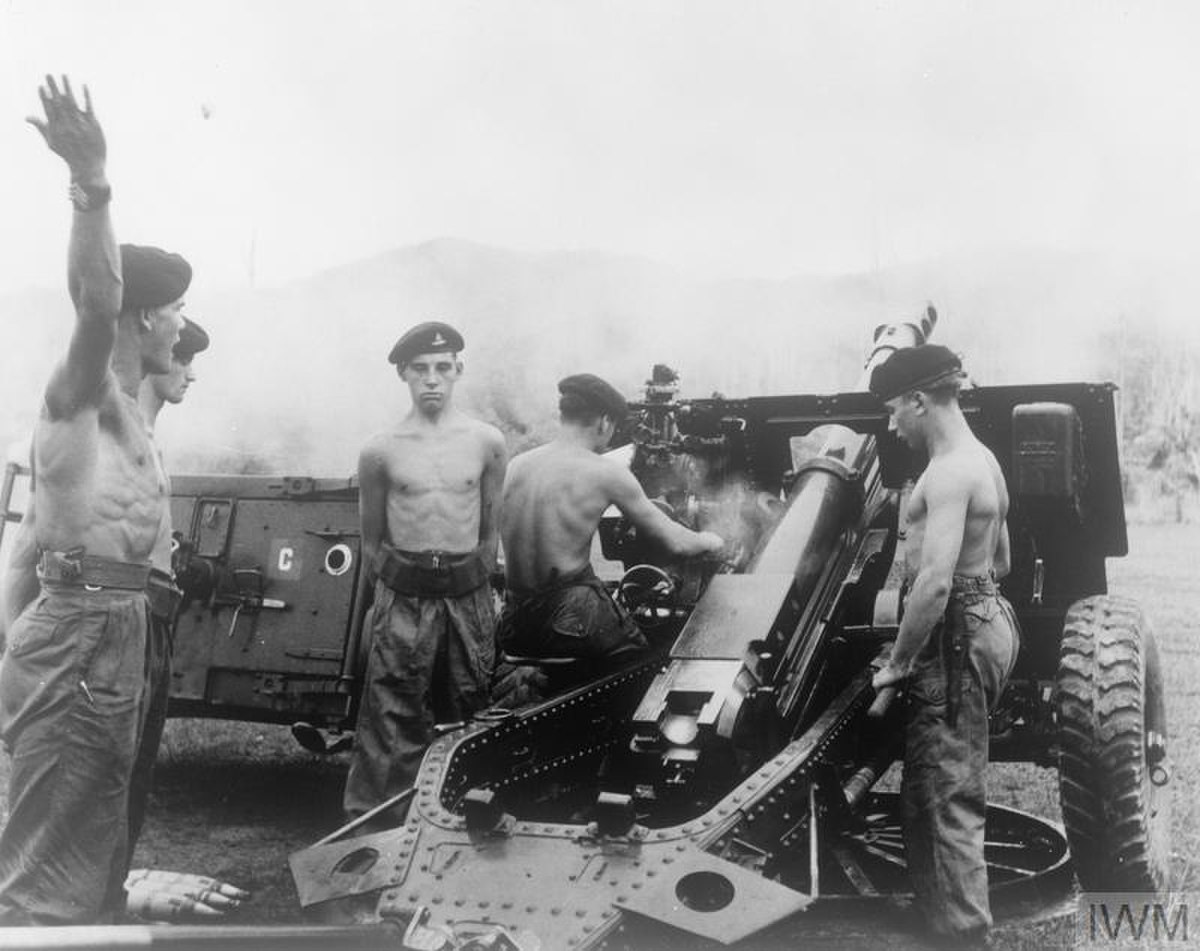
Malayan Emergency
MalaysiaDuring occupation, ethnic tensions were raised and nationalism grew.[82] Britain was bankrupt and the new Labour government was keen to withdraw its forces from the East. But most Malays were more concerned with defending themselves against the MCP than with demanding independence from the British. In 1944, the British drew up plans for a Malayan Union, which would turn the Federated and Unfederated Malay States, plus Penang and Malacca (but not Singapore), into a single Crown colony, with a view towards independence. This move, aiming towards eventual independence, was met with significant resistance from the Malays, primarily due to the proposed equal citizenship for ethnic Chinese and other minorities. The British perceived these groups as more loyal during the war than the Malays. This opposition led to the dissolution of the Malayan Union in 1948, giving way to the Federation of Malaya, which maintained the autonomy of Malay state rulers under British protection.
Parallel to these political changes, the Communist Party of Malaya (MCP), primarily backed by the ethnic Chinese, was gaining momentum. The MCP, initially a legal party, had shifted towards guerrilla warfare with aspirations of expelling the British from Malaya. By July 1948, the British government declared a state of emergency, prompting the MCP to retreat into the jungle and form the Malayan Peoples' Liberation Army. The root causes of this conflict ranged from constitutional changes that marginalized the ethnic Chinese to the displacement of peasants for plantation development. However, the MCP garnered minimal support from global communist powers.
The Malayan Emergency, lasting from 1948 to 1960, saw the British employ modern counter-insurgency tactics, masterminded by Lt.-Gen Sir Gerald Templer, against the MCP. While the conflict saw its share of atrocities, such as the Batang Kali massacre, the British strategy of isolating the MCP from its support base, coupled with economic and political concessions, gradually weakened the insurgents. By the mid-1950s, the tide had turned against the MCP, setting the stage for the Federation's independence within the Commonwealth on 31 August 1957, with Tunku Abdul Rahman as its inaugural prime minister.
